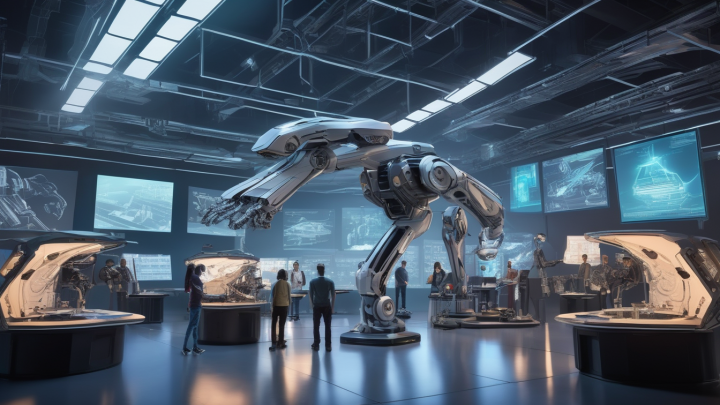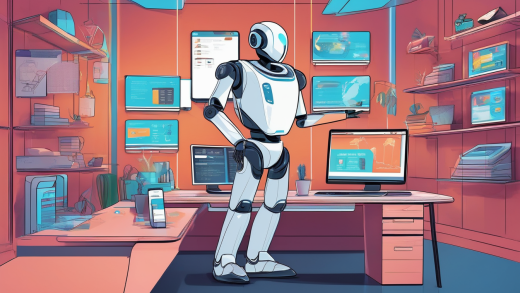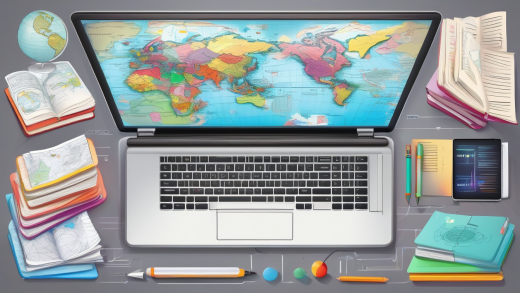Artificial Intelligence (AI) is not just a buzzword anymore; it’s a game-changer in the entertainment industry. From the silver screen to streaming platforms, AI is weaving its magic, transforming how content is created, consumed, and marketed. Imagine a world where your favorite shows are tailored just for you, where scripts practically write themselves, and where immersive experiences redefine storytelling. This is the reality we are stepping into, and it’s nothing short of exhilarating.
To understand the impact of AI on entertainment, we must first look at its evolution. It all began with simple algorithms that could analyze data. Fast forward to today, and we have sophisticated AI systems capable of deep learning and predictive analytics. These advancements have allowed AI to assist in various aspects of entertainment, from scriptwriting to casting. The journey has been remarkable, with milestones that include:
- Early AI applications in video games
- The emergence of AI in film editing
- Development of AI-driven recommendation systems
One of the most thrilling aspects of AI is its role in content creation. AI tools are now capable of generating scripts, composing music, and even creating stunning visual effects. This not only enhances creativity but also streamlines the production process. For instance, AI can analyze successful scripts to suggest plot twists or character arcs, making the writing process faster and more efficient. Think of it as having a co-writer who knows what works best, allowing creators to focus on their artistic vision.
Have you ever wondered how Netflix seems to know exactly what you want to watch? That’s AI at work! By analyzing your viewing habits, AI algorithms can deliver personalized content recommendations, making it easier for you to discover new favorites. This shift has revolutionized audience engagement, transforming passive viewers into active participants in their entertainment journey.
In marketing and distribution, AI is optimizing strategies like never before. With its ability to analyze vast amounts of data, AI helps entertainment companies target specific audiences, ensuring that marketing efforts reach the right people at the right time. This not only maximizes reach but also increases the chances of success for new releases.
AI is also at the forefront of creating immersive experiences through virtual and augmented reality. Imagine stepping into your favorite movie or game, interacting with characters and environments in ways that were once only possible in dreams. This technology is redefining storytelling, making it more engaging and interactive.
However, as we embrace these advancements, we must also consider the ethical implications. Issues such as data privacy, job displacement, and the authenticity of AI-generated content are critical discussions that need to take place. It’s essential to strike a balance between innovation and ethical responsibility.
Looking ahead, the future of AI in entertainment is brimming with potential. As technology continues to evolve, we can expect even more innovative applications that could reshape the landscape. The possibilities are endless, and the excitement is palpable!
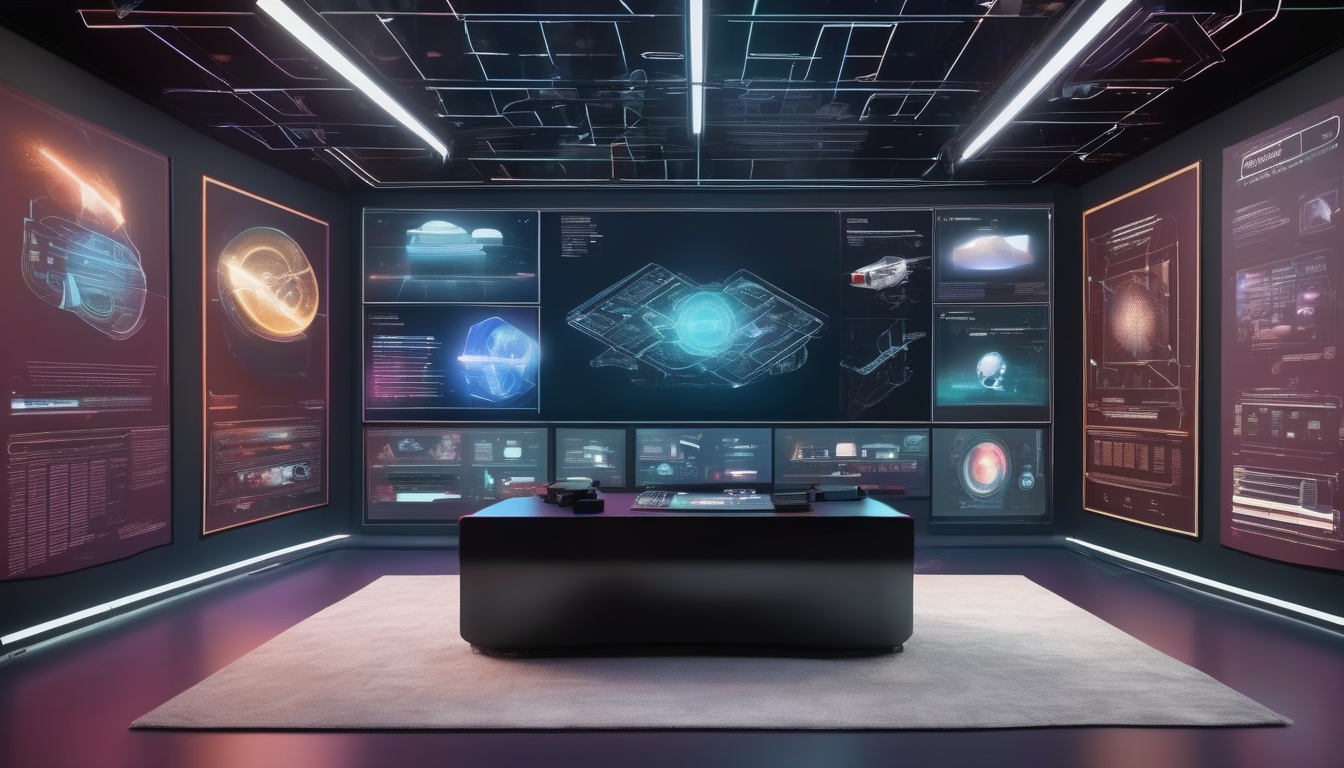
The Evolution of AI in Entertainment
Artificial Intelligence (AI) has come a long way in the entertainment industry, evolving from rudimentary algorithms to complex systems that shape our viewing experiences today. In the early days, AI was primarily used for simple tasks, like generating random music notes or assisting in basic video editing. However, as technology advanced, so did the capabilities of AI, leading to a revolution in how content is created and consumed.
Fast forward to the present, and AI is now a driving force behind many aspects of entertainment. Do you remember when you had to sift through endless options to find something to watch? Well, AI has changed that game entirely. By analyzing user behavior and preferences, AI algorithms can now curate personalized recommendations, making it easier for viewers to discover new shows and movies that resonate with them.
Moreover, AI’s impact is not limited to content consumption; it’s also transforming content creation. From scriptwriting to visual effects, AI tools are enhancing creativity and efficiency. For instance, platforms like OpenAI’s GPT-3 are being used to draft scripts, while AI-driven software can generate stunning visual effects that were once labor-intensive and time-consuming. This shift not only accelerates production timelines but also opens doors for creators to explore new artistic avenues.
To visualize this evolution, consider the following table that outlines key milestones in AI’s journey within the entertainment sector:
| Year | Milestone |
|---|---|
| 1950s | Early AI experiments in music and sound |
| 1990s | AI used for basic video editing |
| 2010s | Introduction of AI in scriptwriting and content recommendations |
| 2020s | Advanced AI tools for visual effects and immersive experiences |
As we look ahead, it’s clear that AI’s role in entertainment will only continue to grow, pushing boundaries and redefining what is possible. The question is, how will we adapt to these changes? Will we embrace AI as a collaborator in creativity, or will we resist its influence? Only time will tell.
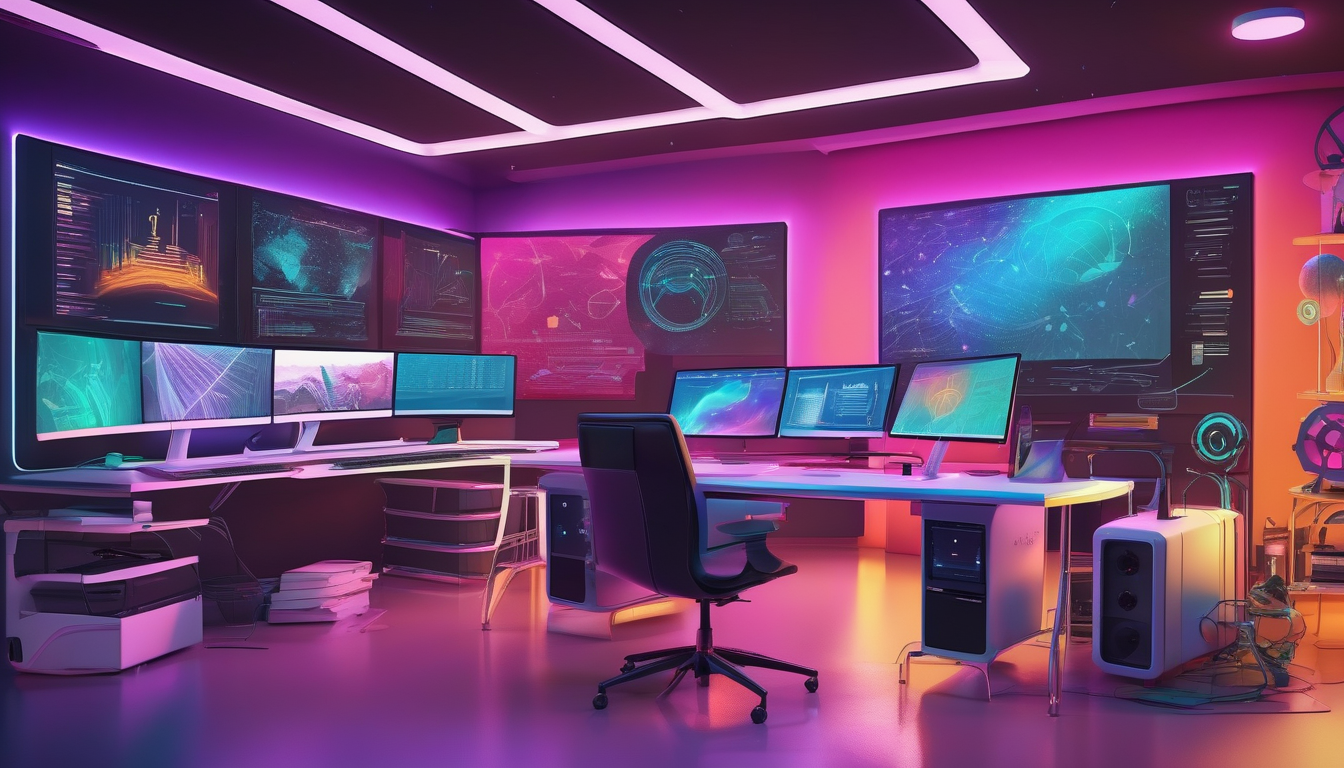
AI in Content Creation
Artificial Intelligence is shaking things up in the world of content creation like never before! Imagine having a smart assistant that can help you write a movie script, compose a catchy tune, or even design stunning visual effects. This is not just a fantasy; it’s happening right now! With AI tools, creators are experiencing a surge in creativity and efficiency, allowing them to focus on what they do best—telling captivating stories.
One of the most exciting developments is in scriptwriting. AI can analyze successful scripts and generate new ideas based on popular themes and character arcs. This means writers can overcome the dreaded writer’s block and explore fresh narratives. For instance, tools like OpenAI’s GPT-3 can provide suggestions or even draft entire scenes, giving writers a helpful push in the right direction.
But it doesn’t stop there! Music composition is also benefiting from AI. Programs can now create original scores that adapt to the mood and tone of a scene, making soundtracks more dynamic and engaging. This is a game-changer for filmmakers who want to evoke specific emotions without the long wait for a human composer.
Visual effects and animation are being revolutionized too. AI algorithms can automate tedious tasks, such as rendering and rotoscoping, allowing artists to concentrate on the creative aspects of their work. For example, AI can generate realistic backgrounds or even animate characters based on simple sketches, drastically reducing production time.
In summary, AI is not just a tool but a co-creator in the entertainment industry. It enhances human creativity while streamlining processes, making it an invaluable asset. As we move forward, the collaboration between AI and human creators promises to bring forth a new era of entertainment that is richer and more diverse than ever before!

Personalized Viewer Experiences
In today’s fast-paced digital world, personalization has become the name of the game, especially in the entertainment industry. Imagine walking into a massive library filled with thousands of books, yet somehow, the moment you step in, a friendly librarian knows exactly which novel will capture your interest. This is the power of AI-driven personalization, and it’s revolutionizing how we consume entertainment.
AI algorithms analyze vast amounts of data, including viewing history, preferences, and even social media interactions, to curate a unique experience for each viewer. This means that what you watch isn’t just a random selection; it’s tailored to your tastes. For instance, if you’re a fan of thrilling action movies, AI can recommend the latest releases that match your interests, ensuring you never miss out on your next favorite flick.
Moreover, this personalized approach extends beyond just recommendations. Streaming platforms are leveraging AI to create dynamic playlists that evolve with your viewing habits. Think of it as your personal DJ, mixing together the best content just for you. As your preferences change, so does the content offered, making each viewing experience fresh and engaging.
But how does this personalization actually work? Here’s a quick breakdown:
- Data Collection: AI gathers data from user interactions, such as what you watch, when you watch it, and how long you stay engaged.
- Behavior Analysis: Algorithms analyze this data to identify patterns and preferences.
- Content Recommendation: Based on the analysis, AI suggests content that aligns with your interests.
As a result, viewers are not just passive consumers; they become active participants in their entertainment journey. This level of engagement transforms how audiences discover content, making it feel less like a chore and more like an adventure. With AI at the helm, the future of personalized viewer experiences looks brighter than ever, promising a world where every viewer feels seen, heard, and catered to.
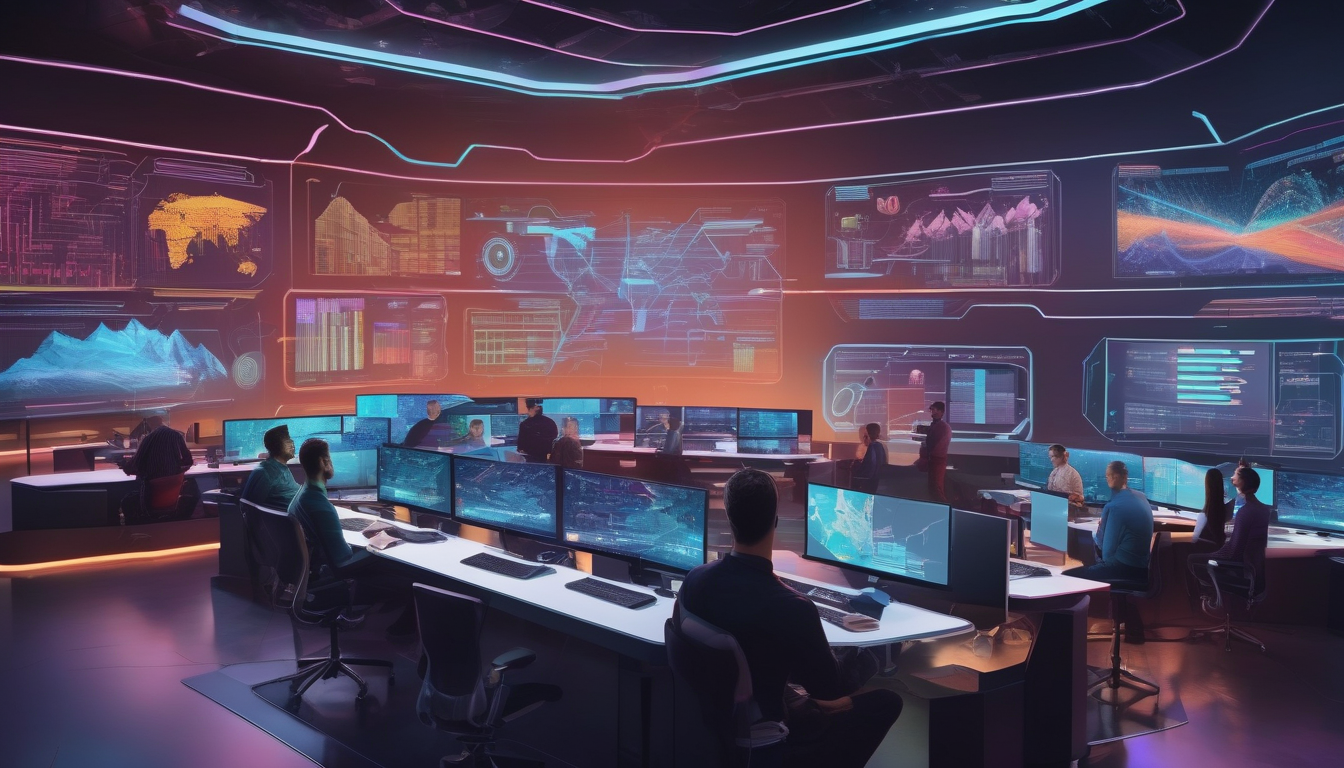
AI in Marketing and Distribution
Artificial Intelligence is revolutionizing the way entertainment companies approach marketing and distribution. Gone are the days of one-size-fits-all campaigns; today, AI enables businesses to tailor their strategies to the unique needs of individual consumers. Imagine walking into a store and being greeted by recommendations that feel as if they’ve been handpicked just for you. That’s the magic of AI!
One of the most significant advantages of AI in marketing is its ability to analyze vast amounts of data. By examining viewer behavior, preferences, and trends, AI algorithms can predict what content will resonate with specific audiences. This leads to more effective advertising campaigns that not only capture attention but also drive engagement. For example, streaming platforms like Netflix use AI to recommend shows based on what you’ve watched previously, making it easier for you to discover new favorites.
Moreover, AI optimizes distribution channels by identifying the best platforms for reaching target demographics. Whether it’s social media, email, or even traditional media, AI helps companies understand where their audience is most active. This ensures that marketing efforts are not wasted on channels that yield little return. Consider this: if you knew exactly where to find your ideal customer, wouldn’t you want to focus your efforts there?
To illustrate the impact of AI in marketing and distribution, here’s a quick comparison:
| Traditional Marketing | AI-Driven Marketing |
|---|---|
| Generic ads for all | Personalized ads based on user data |
| Limited data analysis | Real-time data insights |
| Static campaigns | Dynamic, adaptable strategies |
In essence, AI is not just a tool; it’s a game-changer in the entertainment marketing landscape. As companies continue to harness its power, audiences can expect an increasingly personalized and engaging experience. So, next time you see a recommendation that feels just right, remember that AI is likely behind the curtain, pulling the strings!
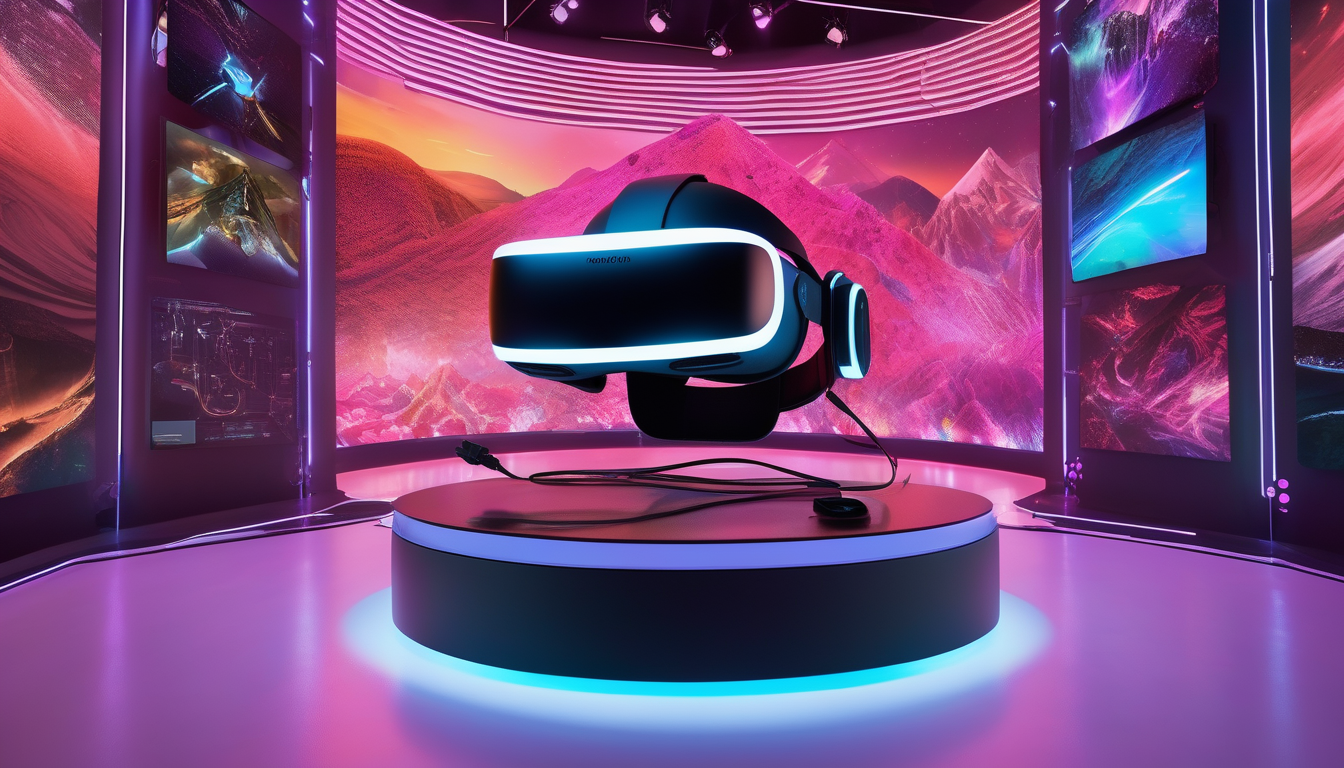
Virtual and Augmented Reality Enhancements
Virtual and Augmented Reality (VR and AR) have taken the entertainment world by storm, and it’s all thanks to the incredible advancements in artificial intelligence. Imagine stepping into a movie, feeling the rush of wind as you soar through a digital sky, or interacting with characters as if they were right beside you. This is not just a dream anymore; it’s a reality that AI is helping to create.
AI plays a crucial role in enhancing these immersive experiences. By analyzing user data and preferences, AI can tailor VR and AR environments to suit individual tastes. For instance, if you prefer thrilling action over romantic comedies, AI can modify the virtual landscapes to reflect that, making your experience uniquely yours. This personalization is what sets AI-enhanced VR and AR apart from traditional entertainment.
Moreover, AI algorithms are capable of creating dynamic content that adapts in real-time. Picture this: you’re in a virtual world where the storyline changes based on your decisions. AI can generate different plotlines, characters, and even environments on the fly, keeping you engaged and invested. This level of interactivity makes you feel like you are part of the story rather than just an observer.
In addition, AI-driven tools are revolutionizing the production of VR and AR content. From generating realistic graphics to simulating lifelike physics, these technologies allow creators to build stunningly immersive worlds without the need for extensive resources. The following table illustrates some of the key technologies at play:
| Technology | Application |
|---|---|
| AI Algorithms | Personalizing user experiences |
| 3D Rendering | Creating realistic environments |
| Motion Tracking | Enhancing user interaction |
As we look to the future, the potential for VR and AR powered by AI seems limitless. With ongoing innovations, we can expect even more breathtaking experiences that will redefine storytelling and audience engagement in the entertainment industry. Are you ready to dive into this exciting new world?
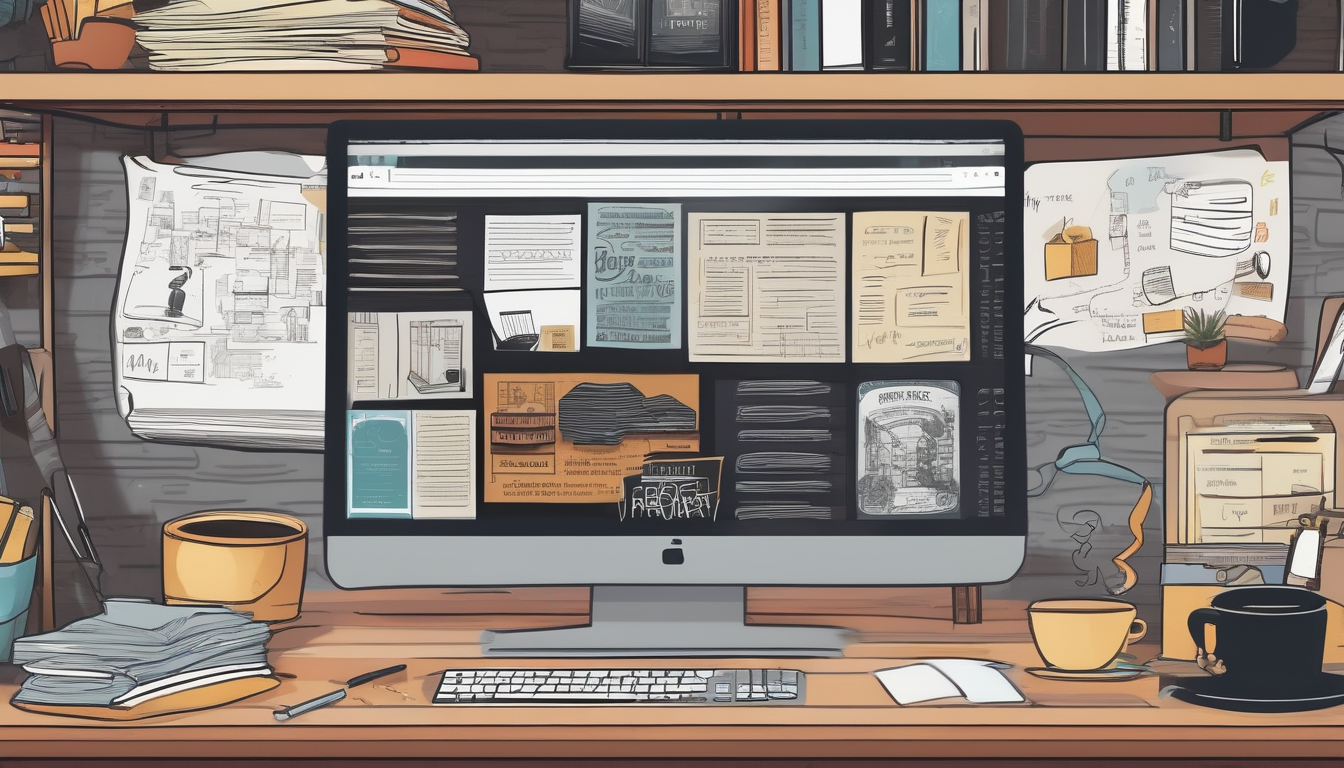
Ethical Considerations in AI Usage
As we dive deeper into the realm of artificial intelligence in entertainment, it’s crucial to address the ethical considerations that accompany this technological revolution. While AI offers incredible opportunities for creativity and efficiency, it also raises significant questions about data privacy, job displacement, and the authenticity of AI-generated content.
One of the primary concerns is data privacy. AI systems often rely on vast amounts of user data to function effectively, which can lead to potential breaches of privacy. For instance, when streaming services use algorithms to recommend content, they collect data on viewing habits. This raises the question: how much of our personal information are we willing to share for a tailored viewing experience? The balance between personalization and privacy is delicate and requires careful navigation.
Another pressing issue is job displacement. As AI tools become more capable of performing tasks traditionally handled by humans—like scriptwriting or even acting—there is a growing fear that many jobs in the entertainment industry could be at risk. While AI can enhance creativity, it also poses a threat to job security for writers, actors, and other creatives. This leads us to ponder: can we embrace AI without sacrificing the livelihoods of talented individuals?
Moreover, the authenticity of AI-generated content is a hot topic. When a film or song is created by an algorithm, can it truly resonate with audiences in the same way as human-made art? The emotional depth and personal experiences that human creators bring to their work are irreplaceable. It’s essential to consider whether AI can genuinely replicate the nuances of human emotion and creativity.
In conclusion, as we embrace the benefits of AI in entertainment, we must remain vigilant about these ethical challenges. Striking the right balance between innovation and responsibility will shape the future of this industry, ensuring that technology enhances rather than undermines the human experience.
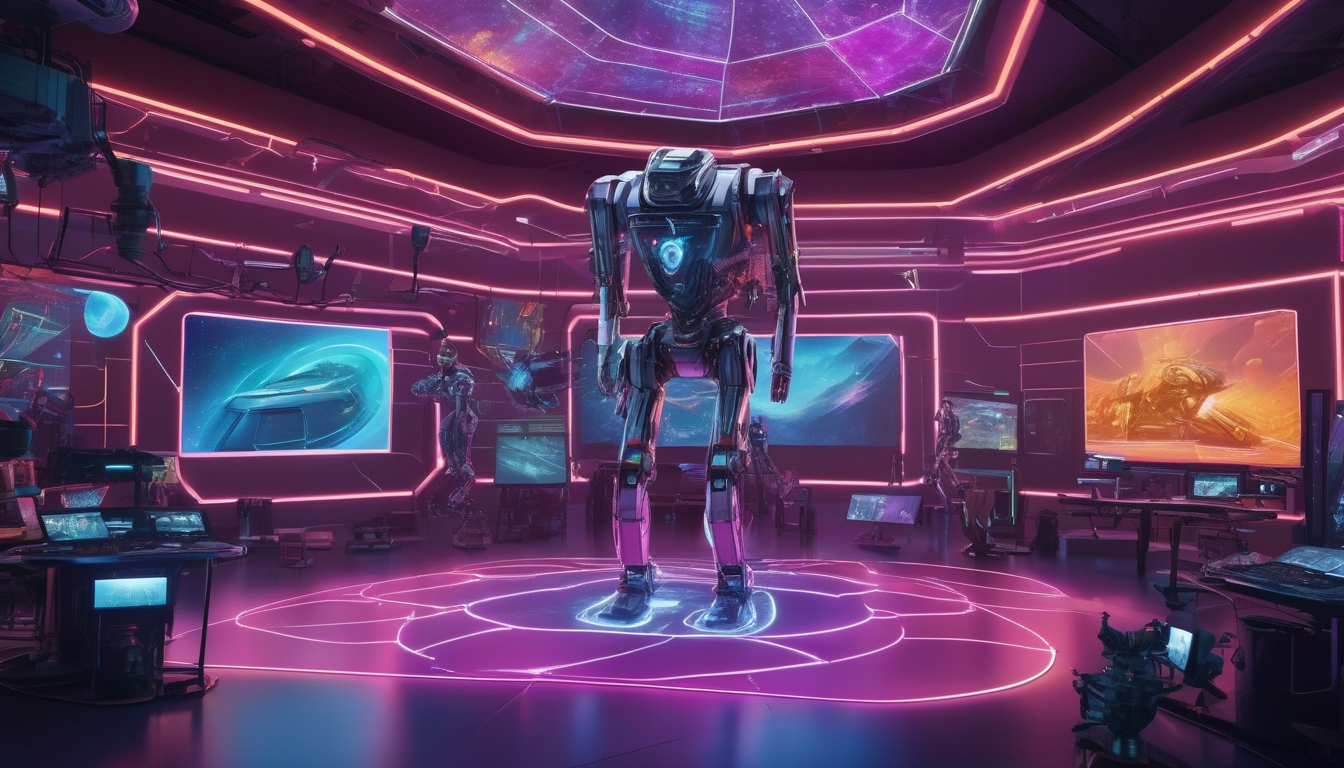
The Future of AI in Entertainment
The future of AI in entertainment is not just a fleeting trend; it’s a revolution that promises to redefine how we consume and create content. Imagine a world where movies and shows are tailored specifically to your tastes, almost as if they were crafted just for you. This is not science fiction; it’s the emerging reality driven by advanced AI technologies. As we look ahead, several key trends are set to shape the landscape of entertainment.
First and foremost, we can expect AI to continue enhancing content personalization. With algorithms becoming increasingly sophisticated, they will analyze our viewing habits, preferences, and even social media interactions to recommend content that resonates with us on a deeper level. This means no more scrolling endlessly through options – AI will curate a selection that feels like it was handpicked just for you.
Furthermore, the integration of AI in storytelling will open new avenues for creativity. Writers and creators will leverage AI tools to brainstorm ideas, develop plots, and even write scripts. This collaboration between human creativity and machine intelligence will lead to innovative narratives that push the boundaries of traditional storytelling. Think of it as a dynamic duo, where the human touch meets the analytical prowess of AI.
Moreover, the rise of immersive experiences through virtual and augmented reality (VR/AR) will be revolutionized by AI. Imagine stepping into a movie where you don’t just watch but actively participate in the storyline. AI will enhance these experiences, making them more interactive and engaging. Audiences will find themselves not just spectators but integral parts of the narrative.
Lastly, as we embrace these advancements, ethical considerations will remain at the forefront. The industry must navigate challenges such as data privacy, job displacement, and the authenticity of AI-generated content. Ensuring a responsible approach to AI will be crucial as we move forward.
In conclusion, the future of AI in entertainment is bright and full of potential. With its ability to personalize, innovate, and create immersive experiences, AI is set to transform the entertainment industry in ways we have only begun to imagine. Are you ready for the show?
Frequently Asked Questions
- How is AI transforming content creation in entertainment?
AI is revolutionizing content creation by streamlining processes like scriptwriting, music composition, and visual effects. Imagine having a co-writer that can analyze trends and suggest plot twists or melodies that resonate with audiences—it’s like having a creative partner that never sleeps!
- What role does AI play in personalizing viewer experiences?
AI analyzes viewer preferences and behaviors to deliver tailored content recommendations. Think of it as your personal entertainment concierge, curating a selection of movies, shows, or music that perfectly fits your tastes, making it easier to discover your next favorite!
- Are there ethical concerns regarding AI in entertainment?
Yes, there are several ethical considerations, including data privacy, job displacement, and the authenticity of AI-generated content. It’s crucial to navigate these waters carefully to ensure that technology enhances creativity without compromising human values.
- How does AI enhance marketing strategies in the entertainment industry?
AI optimizes marketing efforts by analyzing audience data to target specific demographics effectively. It’s like having a crystal ball that helps entertainment companies predict what will resonate with viewers, maximizing their reach and engagement.
- What is the future of AI in the entertainment industry?
The future looks bright! We can expect even more innovative applications of AI, such as deeper personalization, advanced virtual reality experiences, and enhanced storytelling techniques that could redefine how we consume entertainment.
